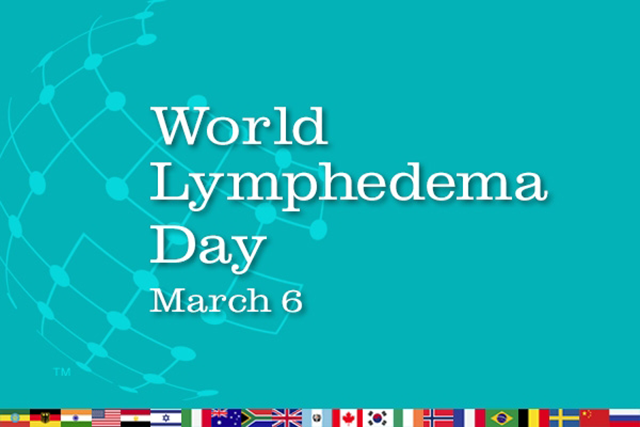
Kathy Bates for World Lymphedema Day
“There is no cure for lymphedema,” states the Mayo Clinic. That’s one reason people all over the world are coming together to raise awareness of this condition – including Oscar-winning actor Kathy Bates, who developed it after breast cancer surgery.
Lymphedema is swelling, typically in the arms and legs, and affects as many as 10 million Americans, many of them cancer survivors like Ms. Bates. In fact, according to the Mayo Clinic, the condition is “most commonly caused by the removal of or damage to your lymph nodes as a part of cancer treatment.”
As William Repicci, Executive Director of the Lymphatic Education & Research Network (LE&RN), the organization leading the drive to establish March 6 as World Lymphedema Day and raise awareness of the disease, says, “Great attention is paid to the battle against cancer. Yet, most people haven’t heard of lymphedema, which cancer frequently leaves in its wake.”

And while it’s true that there is no cure for lymphedema – yet – LE&RN and others are not only educating people about the condition, they are backing the scientific research that is necessary to find improved treatments ... and perhaps a cure. Scientific research such as that being done by the Weizmann Institute of Science’s Dr. Karina Yaniv, whom LE&RN helps support.
Dr. Yaniv has long studied the lymphatic system, which is a parallel system to blood vessels, and which serves as a conduit for everything from immune cells to fat molecules to cancer cells. The system’s origins had been debated by scientists for more than a century – until last year, that is, when Dr. Yaniv resolved the issue by revealing how the lymphatic system develops in the embryo. And, in a world’s first, she actually grew lymphatic cells in the lab. This research was so important that The Scientist devoted major coverage to Dr. Yaniv and her breakthrough.
Understanding how the lymph system forms and develops can provide crucial insights into diseases ranging from the metastasis of cancer to the abnormal accumulation of lymph fluids, particularly in the wake of surgery to remove cancerous tumors. Dr. Yaniv’s research may also lead to new therapies for heart disease, stroke, and other illnesses.
But lymphedema’s devastation goes beyond cancer survivors. As LE&RN’s Repicci said in a press release, “We hear little of the children born with lymphatic malformations or those who inherit lymphedema. There is silence on the issue of wounded war veterans, civilian casualties, and others who suffer from lymphedema due to physical trauma or as a result of surgery. Too many who suffer feel alone.”
To that end, LE&RN, Ms. Bates, and others across the globe are raising awareness by posting a petition on Change.org, asking world leaders for recognition of March 6 as annual World Lymphedema Day. You can make a difference just by clicking!
